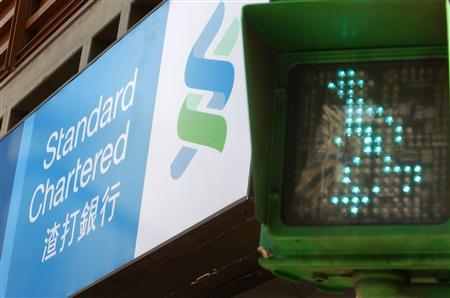
Standard Chartered is looking to shed stressed loans worth $1.4 billion (Rs 9,284 crore) made to Indian firms, including the GMR group, to revamp its asset book.
According to Bloomberg, the bank is seeking to sell at least $4.4 billion of assets in Asia as it pares its balance sheet after booking record impairments.
Assets that are on the block include loans, proprietary bond and equity investments in China, Indonesia and Malaysia.
Chief Executive Officer Bill Winters has pledged to review all of Standard Chartered’s business lines and customer relationships, ranking their risk and returns, with the aim of restructuring or jettisoning about $100 billion of assets.
In February, the bank posted its first annual loss since 1989 as revenue fell and loan impairments nearly doubled to the highest in its history.
In an emailed response to queries by Business Standard, Standard Chartered — India said, “We said in November when we announced our strategic review that we would be aligning our risk profile to the new strategy, and confirmed then that the Group had identified a number of exposures for liquidation that exceeded the new risk tolerance levels.
“While we don't comment on individual clients, we are making good progress on executing our strategy, and we will provide an update to our investors in due course."
According to banking sources, the stressed Indian loan portfolio the bank is selling includes loans to around 10 companies, primarily from the infrastructure and power industries.
The bank has already made provisions for these.
The lender may sell just part of the portfolio, depending on demand.
The bank is believed to have decided against a planned sale of at least $1.5 billion in non-stressed loans extended to mid-market Indian companies after testing buyer interest earlier this year.
In November last year, StanChart, the largest foreign lender in India in terms of branches, had decided to reduce its unsecured retail and corporate business in India as a part of its global restructuring exercise that will cut 15,000 jobs worldwide.
“Adoption of a new risk tolerance framework will reduce single-name concentrations and unsecured retail and corporate business, coupled with more active reduction in our China, India and commodities exposures," the bank said.
Winters had asked investors to bear with him as he takes “painful” steps to reverse his predecessor Peter Sands’ revenue-focused expansion across emerging markets, which left the bank saddled with bad loans when the commodity market crashed and growth stalled in China and India.